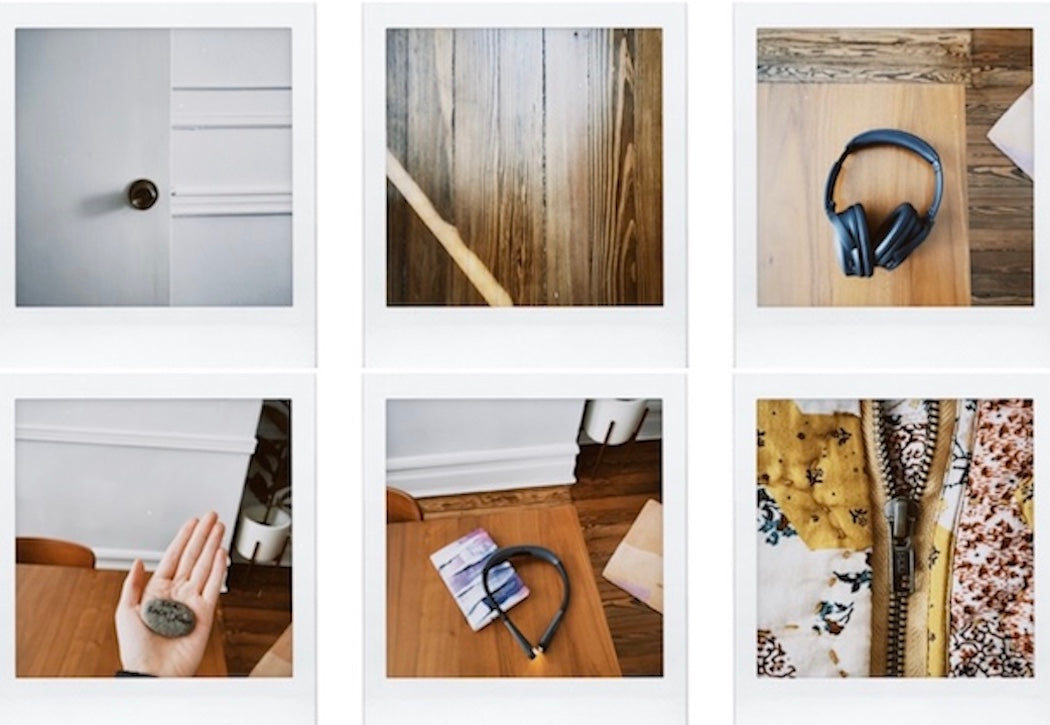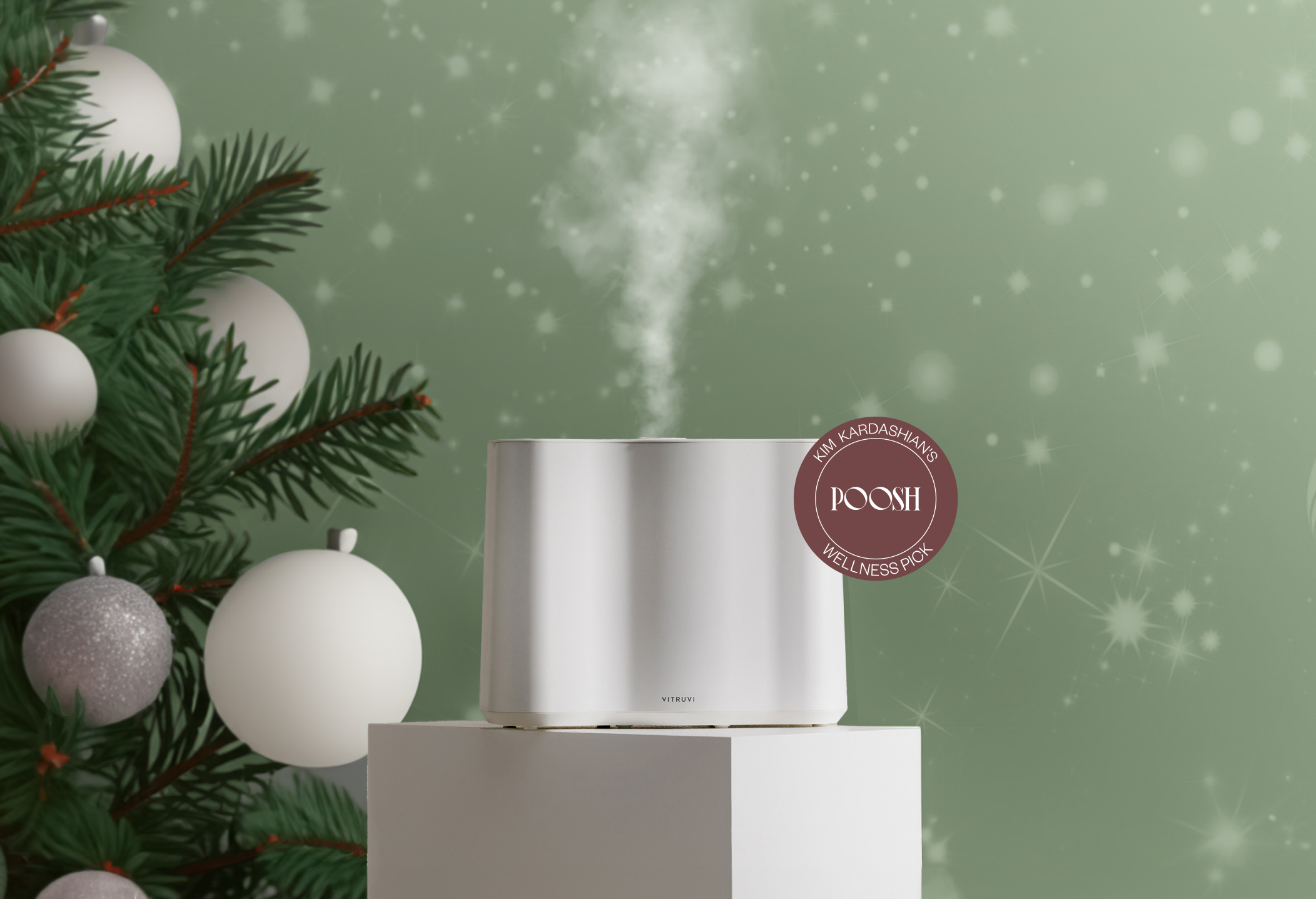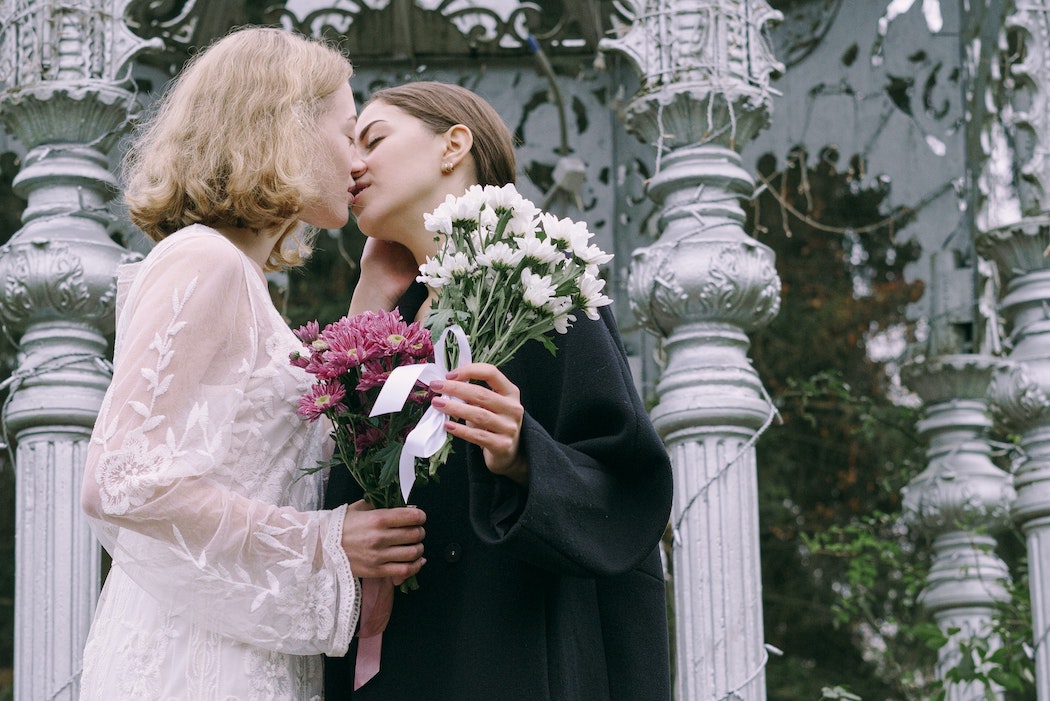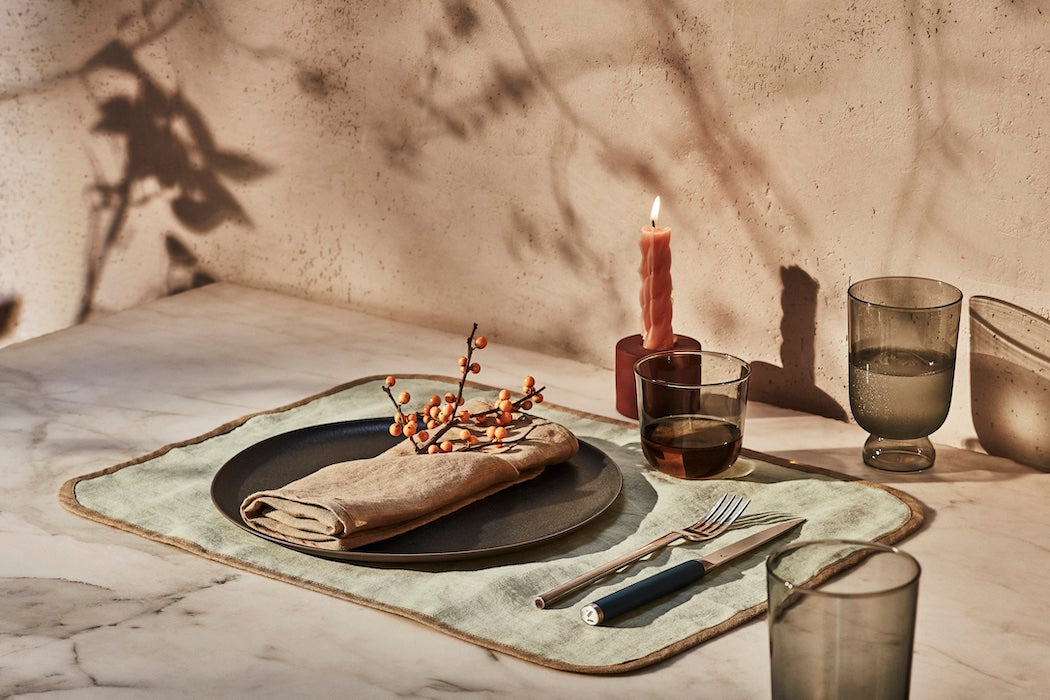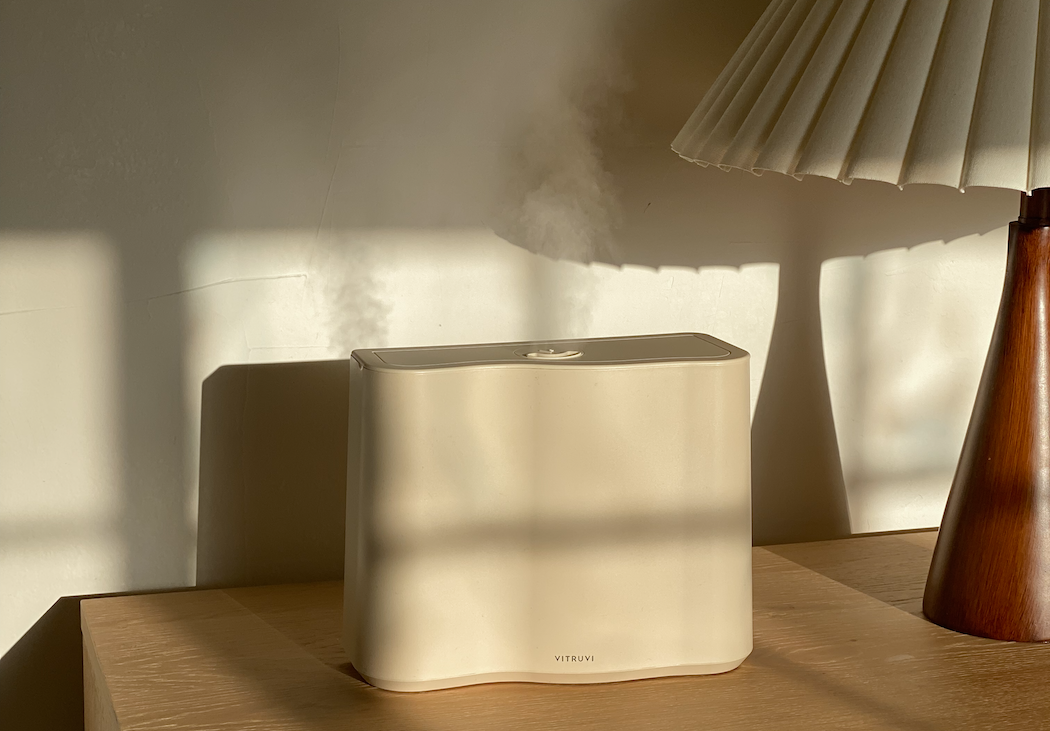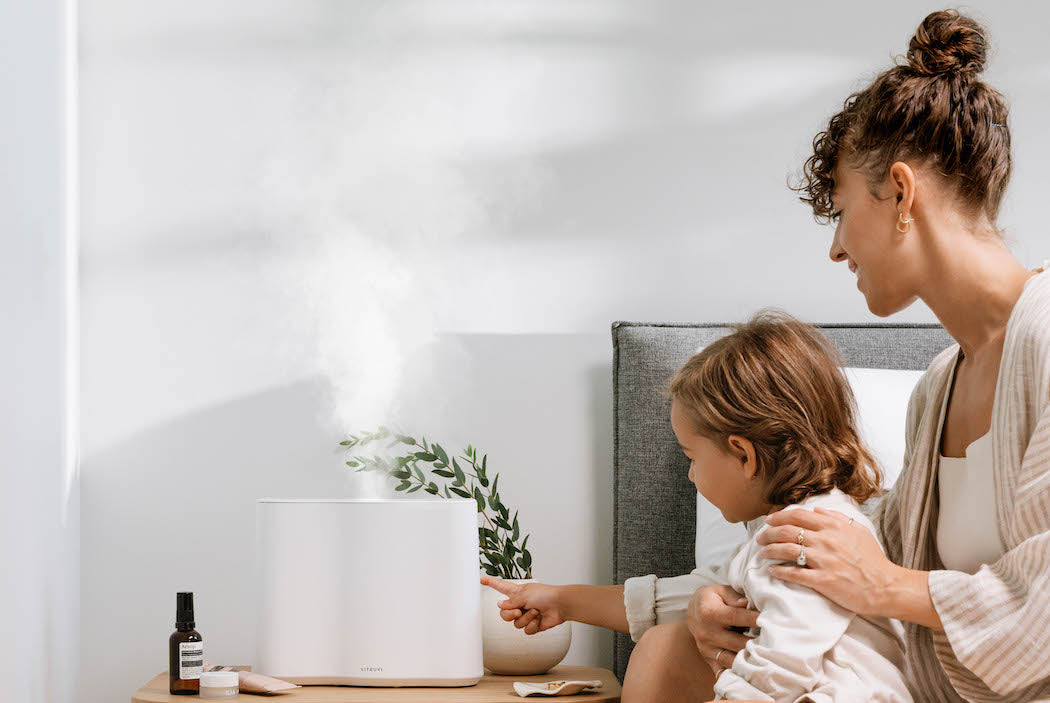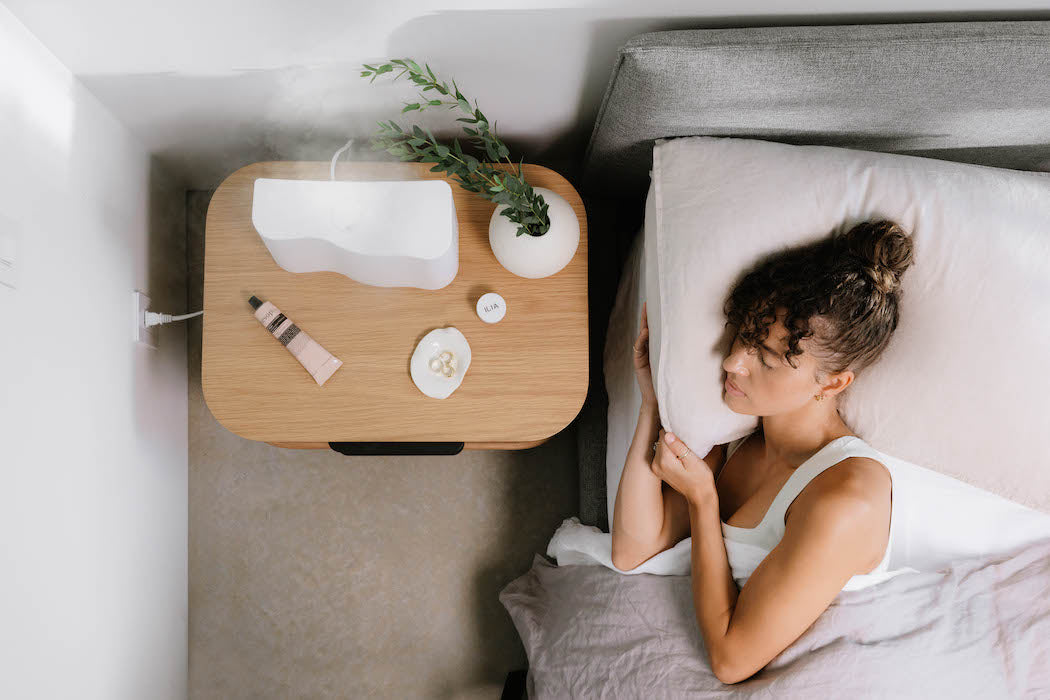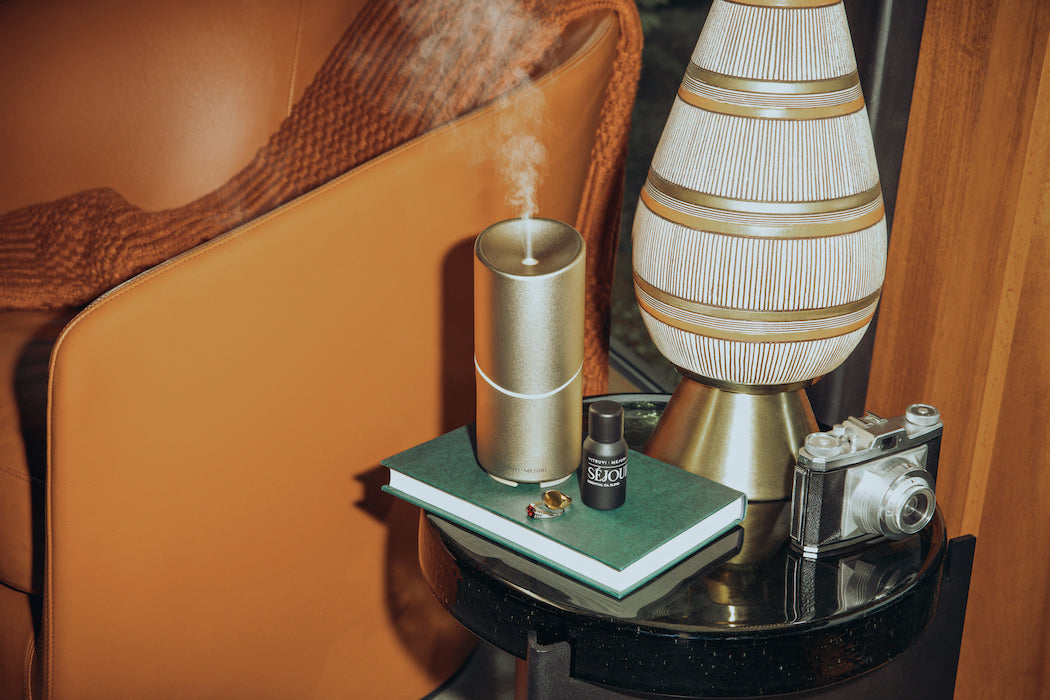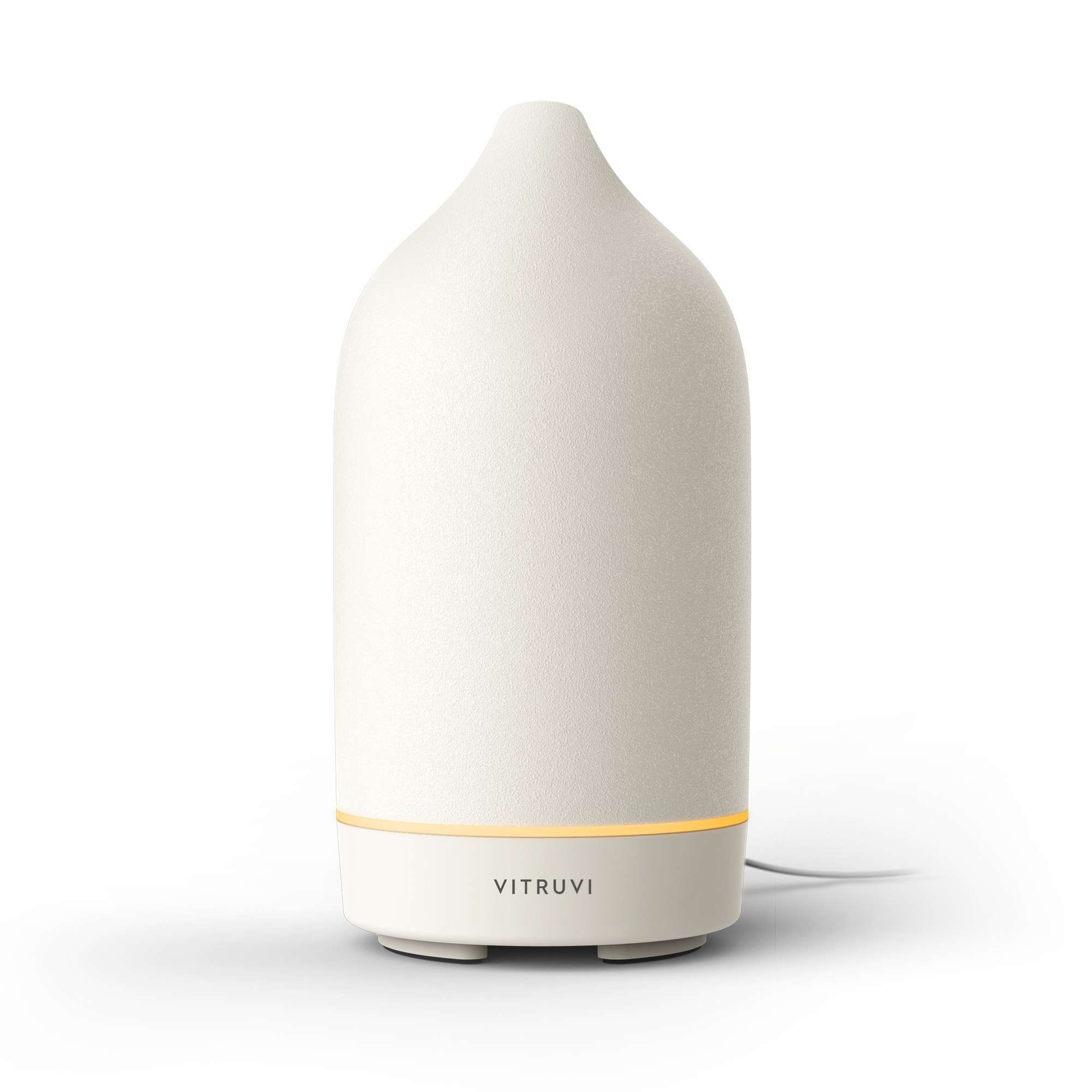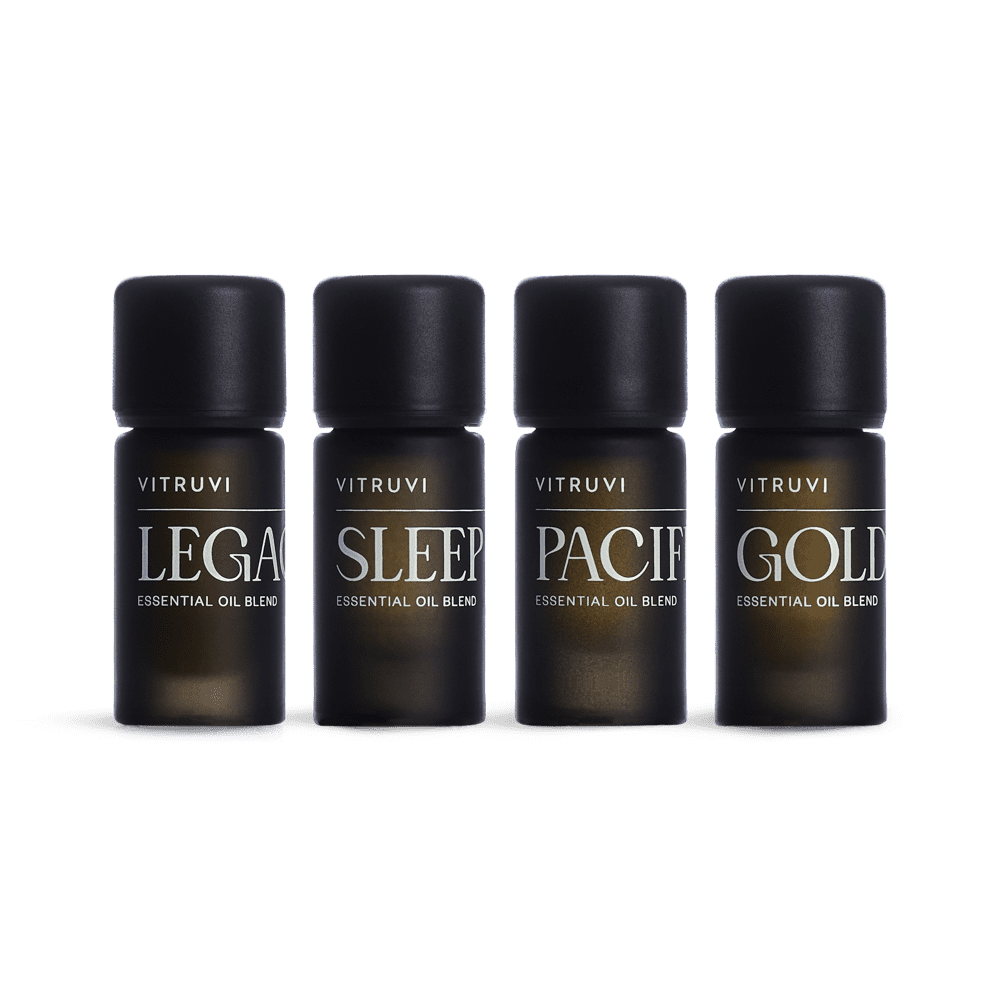For so long, our life was built on movement: the constant work travel, the demands of city living. The list goes on. But it’s hard to remember all of that now, isn’t it?
At the beginning of 2020, we learned to move in other ways. We traded MetroCards for mornings (and afternoons and nights) at home. We shuffled between rooms, throughout hallways—around objects that infused beauty and meaning within our walls.
As our lives became smaller, I began to see these trinkets as relics from a time before everything changed; what were they if not a curated collection of distractions? But, gradually, these items have revealed themselves as necessities beyond function or aesthetics. I’ve realized they protect something precious.
In Michelle Zauner’s memoir Crying in H Mart, there is a moment when she beautifully captures the relationship between love and objects. Late in the book—when her mother has died, and she’s reflecting on her childhood home—she describes sifting through her mother’s belongings. As she reflects on their complicated relationship, Zauner writes that “She was my champion, she was my archive. She had taken the utmost care to preserve the evidence of my existence and growth, capturing me in images, saving all my documents and possessions... She observed me with unparalleled interest, inexhaustible devotion.”
If home is where the heart is, what do we name its contents? Are they the veins? The connective tissue? The blood? We often forget that objects hold pockets of life that are essential to our being. But maybe it’s less tangible. In Goodbye, Again, artist and writer Jonny Sun posits that home “is simply in the ways you take a strange space and make it feel familiar. Sometimes that means putting your stuff in it. Sometimes that just means putting yourself in it and giving it time.”
Those stories are punctuated by loss, by leaving—but that makes them all the more pertinent to our own. You and I, my dear, are learning to leave again: familiar places, old notions, past selves, the pages of our favorite books. Because of that, I need to write this moment down. In case we come back to a life we don’t recognize, even if our home remains unchanged, I need to remember the objects in these rooms and what they mean.
So here it is, my love letter to you: a list of things that became vessels for small but meaningful memories. It’s an alphabetical catalog of what kept us grounded as the world ground to a halt; a shared language just for us.
Alarm clock: notes on time

The iPad alarm rings at the highest possible volume. Our old friend time announces itself amid an onslaught of notifications. We greet it quickly and then snooze for a bit longer, but it eventually creeps into view. It joins us for dinner. It sneaks into our reflections. It whispers to us. Time is polarizing, following us everywhere and nowhere.
Our alarm clock provides a linear read on time, but now the days bleed into one another, and we don’t pay it much mind. What is the point of setting routines? Making plans? Dreaming? The world is in crisis, it’s standing still. Does that mean we should, too?
As another night sky gives way to darkness, we vow to keep each other moving, even in the confines of this space. You set a morning alarm to curb our fears, to give us a sense of direction. And as I blink myself back into consciousness, you’re already awake—hoping that time will be on our side—ready to meet the day.
Bandage: notes on growing pains

Since receiving my eczema diagnosis, first-aid has become part of our love language. You’ve learned how much pressure to apply along my joints so that the bandages remain firmly in place. You know what to say when it stings.
As my skin pulses beneath these fabric curtains, I almost forget how much my heart has been hurting, too. The last few years have reminded us that healing isn’t a fixed point, and neither is growth. Since the day life changed, my bandages have become unsightly. They have turned into a kaleidoscope of color and texture: cherry-tinted with dried blood, covered in charcoal-gray fibers from my favorite sweater. But with your help, I’ve grown to see the beauty in this, too. Slowly, my skin has stretched beyond these injuries; my imagination has expanded.
We understand now that bandages can only do so much to protect us from growing pains. Your fingers graze each frayed edge as you carefully peel them away. I look down and see which parts of myself remain.
Charger: notes on connection

Three wires lay haphazardly on our side table. One phone charger is coming apart at the seams, revealing its metallic hardware; the other two acquire a thin layer of dust. In our less dignified moments, we hunch over the table, getting a last look as our phones attempt to replenish their batteries.
I’m amazed at how much we rely on these cables to connect us to what makes up our lives—especially now. But over time, I’ve come to regard these chargers as another lifeline. They provide us with energy and agency. Because when our phones are charging, we finally begin charging towards life beyond the four corners of a screen.
Door: notes on change

Our clothing rack of seven years finally topples over, the weight of our lives bringing it down in one swift motion. As the rods and shelves hit the floor, the crash reveals a door we forgot was there. For years it remained covered by a curtain of wool and cashmere. But we’re still surprised to see it.
We go back and forth about how to fill the now-empty corner. Do we update the orientation of the furniture in the room? Do we simply replace the rack? I think what we’re really asking is: how much do we want to change? Perhaps this forgotten door reminds us of roads less taken: that there’s always a new path if we find the courage to look for it.
Earphone: notes on privacy

When I try on your noise-canceling earphones, I feel dizzy. It’s disorienting to enter a zone so private that not a hint of noise gets in—but as an artist, you find it to be a necessity.
For hours, you drown out the world and listen to the undercurrents of your own mind. In the privacy of that quiet space, you render cosmic constellations, planets, and characters. Despite how much time you’ve given to your craft, you’re still shy about sharing your work. But every so often, you signal for me to look at the screen. I nod encouragingly and take in the swirl of colors and textures. And when you finally remove your earphones, I know you’re ready to hear what I think of it all.
Floorboard: notes on foundations

The elegant wood planks in our apartment creak loudly at the slightest movement. Parts of the floor chip away if we step too hard. Sharp, uneven edges rip our socks open. In the crevices, bits of hay and other fibers take shelter. We kick up dust motes when we sit and play with our rabbit. I even like to sit on the ground when we’re talking; it gives me a different perspective on things. Because even though we’re taught to look up, I’ve learned to look down. It’s not all beautiful, but it’s part of our foundation.
Garbage can: notes on not throwing away the little moments

The chime of glassware and rustle of drawers drown out what you’re trying to tell me. Not that it matters much: out of the corner of my eye, I catch a dark shadow rolling across the floor. Panic fills my chest, and I shriek: the figure resembles a creepy crawler that had taken up residence here just a few weeks earlier. This snaps you to attention, and upon closer inspection, you begin to roar with laughter. A blueberry from your breakfast has rolled past us behind the garbage can. It is absurd and unremarkable all at once. But I’ve learned not to throw these little moments away.
Hay: notes on the unexpected sights and sounds of love

Every day (multiple times a day), our three-pound lionhead rabbit eats her weight in hay. We have a large bale in our closet, and she’s learned to recognize the sound of the bin as it’s wheeled into the middle of our kitchen. She thumps and buzzes with excitement, and dances around our feet as we fill her feeder to the brim.
The best piece of hay is long and fuzzy. The best sound is her rhythmic munching on a single strand. The best sight is watching her flop to the ground after a quick binge. The best feeling is knowing only you can understand how much is contained in these moments.
Index card: notes on words of encouragement

Do you remember when I left a trail of notes around the apartment for your birthday? They began at the base of the stairs, snaking through hallways and eventually ending near the mirror in our bedroom. Each sticky note and index card listed a reason why I admire you.
Since then, I’ve tried to write down other words of encouragement. Something felt concrete about this practice, putting pen to paper—though it became more complicated as everything shifted. I often looked at those walls in the early days of confinement, trying to envision our life past the barriers. There was a different kind of writing on the wall for so long. But light streaks across them now. When I feel those same walls closing in, I remember how they were once covered in love.
Junk mail: notes on forgiveness

“Don’t throw away my mail,” I tell you. You clarify that you’ve just discarded the “junk,” but I don’t consider these things as readily disposable. Especially now. We’ve been at home for a while, and anything from outside feels sacred. You argue that you’re being practical, and deep down I know you’re right. If left unchecked, I would let fliers and catalogs pile up—until a mountain of ego would make it impossible to reach a summit of forgiveness. So I tell you it’s okay, but I ask you to slow down. You nod in agreement, and I wonder what we’ll learn from each other next.
Key: notes on loss

When I stopped carrying my keys on our daily walks, you asked me why. I said that I didn’t know. But here’s the truth: I’m afraid that I’ll lose them. (This isn’t a rare occurrence; I lost my keys almost monthly during my teen years.)
I’ve focused on what there is to lose for so much of my life: relationships, money, time. Perhaps now, I’m more afraid of losing access or control. But if this period has shown us anything, it’s that the real key to an enriching life is acceptance. In many ways, you’ve learned this lesson already. You acknowledge that it’s an imperfect task—that sometimes it gets jammed in the knob, and you have to work a little harder to cross that threshold. But eventually, the door opens. And knowing that has unlocked so much.
Light: notes on epiphany

We’re lucky to live in an apartment with a lot of natural light. When you work in our dining room, I watch the way it shimmers in your direction. Sometimes I wish you noticed it more; your eyes are often downcast towards a screen, hands dancing rapidly across your keyboard.
When the sunlight retreats for the day and I switch on the light overhead, I see the bulb’s fluorescent colors cast shadows across your face. But the light in your eyes tells me that another kind of switch has flipped. Your passion illuminates the room.
Mask: notes on habits

I thought I was going to write about our mugs. Ever the morning person, you enthusiastically ask me each day which one I’d like for my coffee. We take in the wafting scent with each pour and timidly wrap our fingers around their handles. I can’t imagine life without this small ritual.
But it goes without saying that another “M” pervaded our daily habits. You approached our mask selection with the same attention you gave to choosing a coffee mug: is it sturdy? Does it fit? Will it last?
A pile of masks now sits at the end of our dining table. I sometimes catch myself staring at it as we sip our coffee. When I look in your direction again, you bring a ceramic terracotta mug to your lips, and I think maybe you should just bring your lips to mine.
Napkin: notes on mess

You run a napkin carefully across the kitchen counter, catching things I would never think were there. You clean as you cook. You break down a box as you unpack its contents. I watch as you try to get ahead of the disorder.
Your resolve makes me want to take a napkin to this piece—to wipe away extra qualifiers, adjectives, em dashes. To work through the mess and make it mean something.
Outlet: notes on creativity

The hiss of the radiator jolts us out of a daze. We’ve just refreshed our tiny home office and have settled into our respective nooks. Behind me, you’re putting the last touches on our “cable management.” A stream of cords and wires run through a white box, which you triumphantly plug into the outlet behind your desk. “There!” you exclaim. “We’re good to go.”
I plug into these moments just as much as the machines plug us into our work. In this small sanctuary, our creative outlets are a shared energy source. We write and draw. We share and fuel ideas. Our work comes together and apart. We are each other’s outlets—in art and life.
Pebble: notes on family

Remember when my dad sent us that care package? At the bottom of the box, we found a small pebble. He’d written a note on both sides in marker: one side read “FOR RACH + JOHN,” and the other, “SUNDAY WALK ROCK - 2/7/21.”
Merriam-Webster defines a pebble as “a small usually rounded stone especially when worn by the action of water.” I never asked my dad where the pebble came from. But as it sits in our home office, I think about how loving our family comes in waves—we push and pull against them, though ultimately we are worn by the action. It’s misshapen yet enduring. It’s carved in rock.
Quilt: notes on kindness

You ask me if we should switch the sides of our bed. I usually sleep on the side closest to the windows, and because we live on a tree-lined street, you wonder if this will alleviate my (relentless) allergy attacks. We don’t make it more than 10 minutes before returning to our rightful positions.
We roll on our sides and face one another. We pull our quilt up to our necks. You hold it close to your face, and I hold this small act of kindness close to my heart.
Reading light: notes on finding our way in the dark

At night when everything falls away, I wrap the reading light you gave me around my neck and reach for a book. It’s an oddly-shaped contraption, with two tentacle-like stems that bend easily towards the page. You have one, too.
When we can’t concentrate, we point the lights at each other like lightsabers. Eventually, we grow tired of the bright glow in our eyes and turn the lights towards the blank wall in front of us. We make peace signs, and bunny ears, and other random silhouettes. I see our joy so clearly here, even in the dark. I watch the shadows shape our story.
Sketchbook: notes on distraction

Your sketchbook lies between us on the couch. Mindless television plays in the background. Silently, we take turns drawing scenes that bleed into one another. I caption them things like Grow Slow; Bagels and Margaritas; Tired.
Our eyes jump up and down from page to screen and then, almost in unison, to each other. Looking back on this moment, I can’t say that we were smiling at one another. Our minds are constantly pulled in a million different directions. But we came together and made sense of them, if only for a moment. It’s all there on the page.
Tape: notes on strength

The bottom drawer of our filing cabinet requires a layer of tape to keep it closed. Adhesive strips affix paintings to our walls. Medical tape secures gauze around my wounds. We know that no matter how well something is built, there’s always the possibility of it falling apart. Accepting that gives us our strength. When things crash around us, we sigh knowingly—and then begin picking up the pieces.
Undershirt: notes on intimacy

I used to believe that intimacy meant baring all; but more often than not, it’s about intuiting what a body needs. When my skin throbs, you unfold three cotton shirts ranging in color from dark navy to pure black. I pull one of these shapeless, simple garments over my shoulders. When the last bit of fabric goes over my head, you’re still standing there, bandages in hand. I don’t feel beautiful, but I do feel seen. You return my silence with a smile, and that says everything.
Vase: notes on pride

Five days a week, you push the two vases on our dining room table to the side. You need space to set up your workstation. Then, you subtly shift your chair so that it points away from our bookcase, where several other objects occupy each shelf. You want a clean backdrop for video calls.
The compromise here is that you let me fill the vases, and I let you fill the space—with purpose, with passion, and with other things that sometimes feel out of reach. We each bring something to this home. And when your voice echoes throughout these rooms, I swell with pride.
Wallet: notes on identity

Your wallet: black leather. One driver’s license. One (expired) coworking membership card. One health insurance card. One unused gift card. Two credit cards.
My wallet: black leather (nearly twice the size). One state ID card. One credit card. One health insurance card. One (very) old MetroCard. Two debit cards. Multiple punch cards for our favorite coffee shop. Many old receipts. Loose change.
To the outside world, what’s in these wallets indicates our worth. We often forget that they are things we can put away, bury deep inside our pockets. The value we assign these objects in our lives is up to us. Because when they’re outside of our realm of vision, we can invest in what matters: the things we bury deep inside ourselves.
Xmas tree: notes on hope

A five-foot tree is something we can agree on: it’s the easiest for you to carry home. The scent of fresh pine lifts our spirits.
Have you ever noticed that we’ve been looking up almost the entire time? Maybe that’s why we both love the holidays so much. It reminds us to keep our chins up and our hearts open. Though as we’ve learned over the last few years, the nature of hope is a tricky thing; it ebbs and flows. And yet, we’ve found ways to cultivate faith. To tend to it year-round. To plant the seeds for a new year and see what blossoms in return.
Yogurt: notes on attention

One cup of yogurt. Two handfuls of granola. A sprinkle of blueberries, raspberries, and blackberries. Pay attention to how reading this makes you feel. Can you sense the cool slivers of yogurt slip from your tongue down your throat? The satisfying crunch of oats between your teeth? The fruity tang coating your lips?
There’s no real story here—just brief documentation of something nourishing. You like it, and I’ve noticed that.
Zipper: notes on endings

We rent the top floor of a brownstone, and the entryway is within earshot of our landlords’ part of the building. Knowing this, we leave our apartment quietly most days, holding space for the innocence that lies on the other side of the wooden farm doors. Sometimes we hear their child’s giggles or the muffled fragments of a work call. But most times, the only sound filling the air is the clip of our coat zippers struggling to close.
In the near silence, I think about how so much has come to a close over the years. I try to steady my hand at the clasp until I feel your palm over my fingers. With one swift motion, you tug the zipper up and adjust my collar with a smile. “Are you ready?” you whisper. It’s a simple question, and the answer is being written in real time. Then I remember that’s the point: we’ll never fully be ready for what’s ahead, but the world has been waiting for our return. So I nod and walk towards the stoop. You shut the door behind us.

